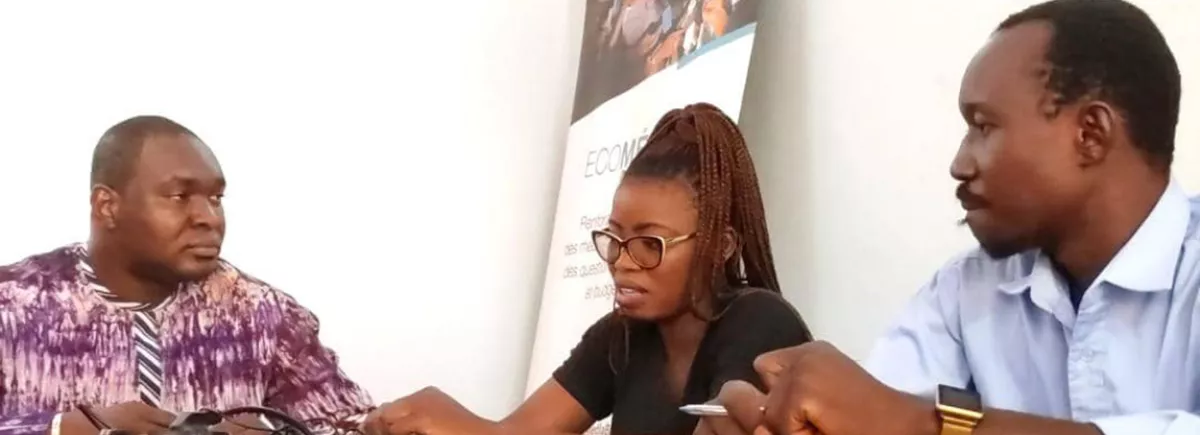
Behind the scenes of Jeunes Wakat pour Elles (Youth Time for Women)
Related project
MediaLab for WomenSince 2019, as part of the MediaSahel project, the Union National de l’Audiovisuel Libre du Faso (UNALFA) (National Union of Free Audiovisual Media of Burkina Faso) has produced Jeunes Wakat (Youth Time), a weekly programme for young people. In September 2022, the programme became Jeunes Wakat pour Elles.
It is 9am on Tuesday, 21 March, at the UNALFA premises in Bassinko, in the suburbs of Ouagadougou. Five young people, only one of whom is a young woman, are gathered around Rachid Assade Zongo, Chief Editor of Jeunes Wakat pour Elles. Two female presenters are absent, as they are busy elsewhere. Outside, the temperature is already over 38°. Despite the door being open to the outside, the well-lit room is overheated. Only one fan is working.
The Jeunes Wakat team is gathered for one of two weekly editorial meetings. The second will be held in a few days online.
Seated around a large oval table, Assade opens the session. First item on the agenda: critique and comments on the previous programme on the processing of agricultural products. He passes on the positive feedback from the guest, as well as that of a civil society organisation (CSO) representative. He takes the opportunity to highlight the difficulty of working with some CSOs. “There are a lot of them, but they are not reactive enough”.
Determining the angle to take in coverage
It is now the chance for other members of the team to speak. One of them reports that, in Ouahigouya, there were many calls from listeners. Many were questioning the motivations behind the guest's decision to leave his office job to start processing grain products.
After a few minutes of discussion, talk moves on to the second item on the agenda: the topics of future broadcasts. On the schedule: the wedding night and the week after, the dangers associated with the use of aphrodisiacs. These two topics are the result of the consultation workshop with CSOs held last February as part of Mediasahel for Women.
The discussions are going well: can we talk about the wedding night, is it not too explicit? Do we want to talk about the first time? Ultimately, the topic will be rephrased as “De la rencontre à la nuit de noces” (From the first meeting to the wedding night). Next is the issue of the choice of guest. Should we use a marriage coach or a counsellor? As for the second topic, can we discuss the dangers without necessarily going into the actual reasons behind the use of aphrodisiacs? Will we be able to find people willing to discuss such an intimate subject?
This is a relevant subject that resonates with the news. The day before, the National Agency for Health Security denounced the danger of so-called “natural” products with aphrodisiac effects.
Nothing is improvised. Determining the angle to take in coverage, so as to avoid offending the sensibilities of the listeners, identifying guests, finding a book related to the subject that will be included in the “Et si on lisait ?” (And what if we read?) section, defining the content of the other sections, etc.
The discussions are lengthy. In a relaxed atmosphere, interspersed with a few bursts of laughter, the roadmap of the next two programmes takes shape little by little...
Listen to Jeunes Wakat pour elles.


